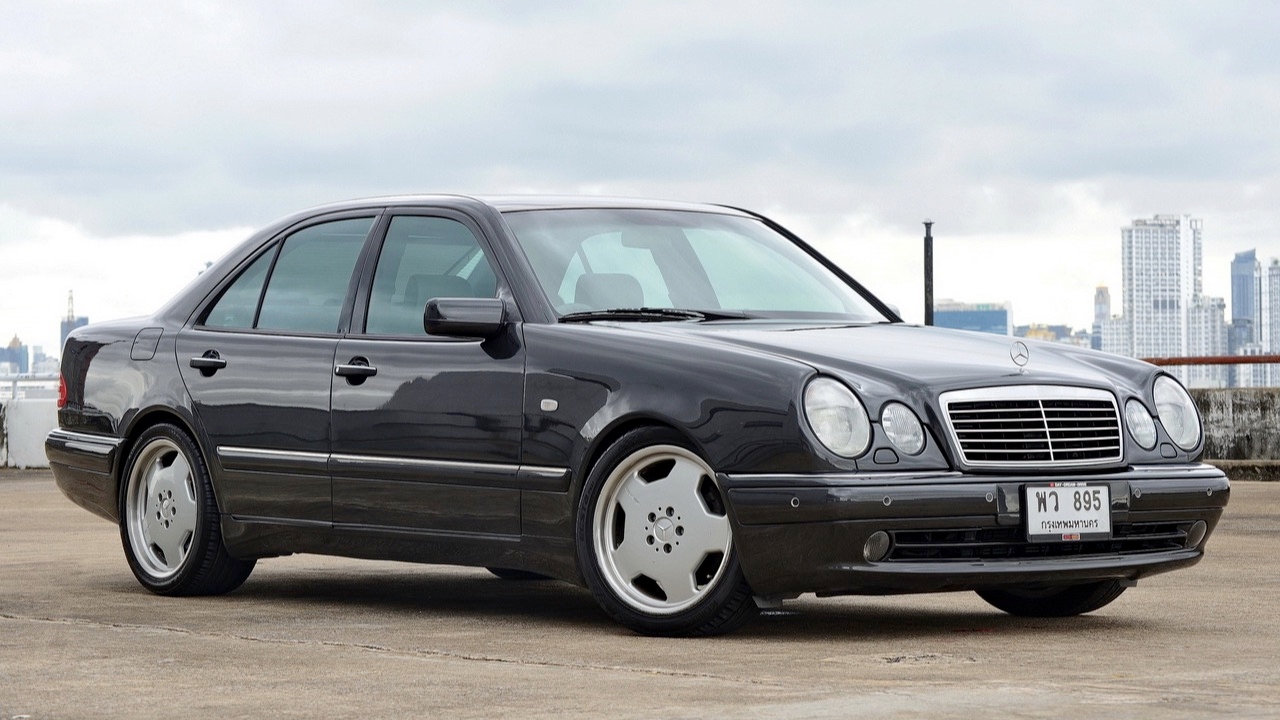#Europe #shot #foot #electric #car #craze #Hungary #emerge #victorious
The global automotive industry has undergone a significant transformation in the past decade: with economic and climate goals in mind, the focus is increasingly on electric car production. The pace is dictated by China, which is well ahead of the market in terms of developments, not at all environmentally friendly and spreads its battery production around the world. This is the process It also affects Hungary: the servicing of the Chinese industry through the battery factories coincides perfectly with the opening to the East, meanwhile BMW and the Audi factory are operating without disturbance, so the swing policy seems to be successful in an economic sense for the time being.
It is not worth forgetting, however, that the Tesla in addition to China, the United States is also among the leaders, while the long-established, mostly European manufacturers are forced to switch from the development of increasingly fuel-friendly internal combustion technology to electric production as a result of the hasty decisions of the EU. This is inevitable if only because of the current situation in the European Union It will be banned from 2035 the sale of newly manufactured internal combustion motor vehicles. But market trends increasingly show that not everyone wants an e-car, sales fall far short of expectations.
The current limitations of battery technology are in pole position among the doubts: slow charging, relatively short range and very high repair costs.
As a result, more and more critical voices appear, who claim that after the early adopters, the interest in electric technology does not reach the volume in which production takes place, while the masses would rush after internal combustion developments, but due to the electric focus, their price became very expensive after the covid epidemic. So slowly the decision makers are also realizing itthat with the influx of Chinese and American e-cars, European production, and thus the future of European industry and the economy, is also at risk. Gábor Várkonyi we checked with a car market expert what the electric transition is going to cost Europe.
Are you sure they are going to ban internal combustion engines?
As is known, the ministers responsible for energy affairs of the EU member states at their meeting in Brussels in March 2023 was approved the regulation on the review of carbon dioxide emission standards for new passenger cars and vans, according to which the sale of new cars with diesel and gasoline engines in the EU must be phased out by 2035, so that all new cars produced must be emission-free.
One loophole at the same time, the German car lobby fought back: even after the deadline, new cars powered by internal combustion engines will be able to be sold if they run on synthetic fuel. For now, this is far from reality, as is hydrogen-based technology, but China is investing an incredible amount of money in it.
Meanwhile, Europe is struggling to compete with the flood of American and especially Chinese electric cars that are flooding the European market.
According to the European regulation a set for 2030, the intermediate emission reduction target value is 55 percent for new passenger cars and 50 percent for vans. However, the regulation contains a clause that obliges the European Commission to evaluate in 2026 the progress made towards achieving the zero-emissions targets set for 2035 and, if necessary, to revise the target values to be achieved. As part of the review, technological development, including hybrid technologies, and the importance of a socially just green transition must be taken into account.
A mirror article published at the end of April according to him, this could be an important passage, because even though the German government was initially an advocate of an early green transition for the sake of climate goals, due to the sales of electric cars and the forecasted economic downturn, they are already looking for loopholes to reverse the decree. The governing CDU-CSU party alliance is also trying to persuade its European People’s Party (EPP) partners to do so, but according to the news, the Swedes, for example, were not interested in Vabsolut – which may also be due to the fact that it is originally Swedish Polestar and Volvo is also in Chinese hands.
However, Germany realized that it was “a mistake” to put climate goals ahead of economic and political goals. According to Gábor Várkonyi, compared to the other great powers, Europe took the climate goals contained in the Paris Agreement too seriously, which overrode economic realities.
Electric cars are not a bad solution, but in the short time horizon, with the pressure that Europe has set, only bad things can come out of it
said the car market expert. Most analysis only members of the middle and upper class can afford the transition, and the proportion of state subsidies is not proportional to the degree of progress in environmental protection. Meanwhile, the pan-European vehicle fleet is clearly visible is getting oldand the poorer ones are cut off, which is also disadvantageous from a climate point of view.
Júlia Horváth / 24.hu Electric car charging station.
According to Várkonyi, it would be good for Europe if electric and internal combustion cars were on the market at the same time. subsidies even without it, it can reach a value of around 30 percent among new cars.
The European electric car policy went completely against the interests of the European industry, while it served the Chinese perfectly. Whether this was in good faith or rather the influence of the Chinese lobby, I will not put it into anyone’s mouth
said the specialist.
The European car industry is in trouble
When we say electric car, a lot of people these days think of only one brand: Tesla. It’s not a coincidence, is it Elon Musk the American giant led by him is not only in America dominates the market, but also globally. In 2023, it delivered more than 1,800,000 electric cars worldwide, and even entered the German market in Gigafactory in Berlin with its handover in 2022.
Tesla’s sales volume is more than the combined results of Volkswagen (770 thousand electric vehicles), BMW (376 thousand) and Mercedes-Benz (250 thousand), as well as the Stellantis concern (270 thousand), which includes quite a few Italian, French and German brands in the field of e-cars.
This is all worthy of recognition, but at the same time, the Chinese manufacturers also worked together to achieve this: BYD, which built a factory in Szeged, delivered 1 million 575 thousand cars, SAIC 700 thousand, Geely approximately 510 thousand, and GAC 480 thousand cars globally, which is a total of 3 million means 265 copies. This clearly shows the dominance of the Chinese, the beginning of which dates back decades.
According to Gábor Várkonyi, around the turn of the millennium, the Chinese realized that they were 3-4 decades away from catching up with the Europeans in the production of internal combustion engine cars. Therefore, as he said, they had to be convinced that the future lies in electrical solutions from a climate point of view, because they had decades of experience in this, and they also had the resources to build dominance. It is no coincidence that BYD, which is popular today, also started as a battery factory in the nineties.
Meanwhile, the environmental pollution measurements showed electric cars in a better light, as a result of which the public mood changed, to which the 2015 emissions scandal put the seal on it for good. According to the expert, we have just come to the point where the problem is really big: it is no coincidence that top European suppliers such as Bosch or Continental are laying off thousands, and the same can be expected at the big European car manufacturers soon.
We sacrificed the market that gave us our livelihood by volunteering and singing
– said Várkonyi, adding that fortunately Europeans cannot be fed the “100 percent electricity” story, and they indicated what they wanted with their money.
As the Spiegel also pointed out that the problem with European electric cars is that the prices are very high. The Germans have no European electric cars on the market below 25,000 euros, or 10 million forints, but even around 30,000 euros (12 million forints) are few. On the other hand, Chinese models can be obtained for much less than that, and there is no shortage of capacity. Today, more electric cars are produced than the market can or wants to absorb: and this led to the fact that Volkswagen ended its plans for a revolutionary e-car in 2023 e-up! production, as it was not profitable.
Although the market for internal combustion cars remains large, openness to electric cars is also growing. According to Spiegel’s opinion poll, the attitude of German society changed considerably between October last year and February this year: more and more people would choose an electric car as their next vehicle, while they think German manufacturers are less and less superior, so they would easily choose a Chinese car. So it looks like European buyers are increasingly concerned with price, which is also affecting the second-hand market: the price of simple, cost-cutting EVs is fixed, while there is no demand for heavy, complicated e-cars equipped with large batteries. In addition to the price of the car, the cost of maintenance is also an increasingly important aspect.
Clemens Bilan / EPA / MTI US automaker Tesla’s Cybertruck electric pickup truck on display outside a shopping center in Berlin on May 2, 2024.
High costs and a lot of inconvenience
As a result of the Russian-Ukrainian war, energy prices in the whole of Europe dropped significantly, so it was no longer possible to repeat what was the great promise at the beginning of the electric car industry: the car is more expensive, but the cost of transportation is cheaper. While in the beginning there were many places where cars could be charged for free, and even the privilege of free parking came with it, today this is no longer the case anywhere.
Due to the increase in energy prices in recent years, we are now at the point where they are roughly equal refueling and charging costs for gasoline and electric cars, and if the owner does not have a charging point at home, it can be even worse with electric cars.
The expert indicated that it is very difficult to compare gasoline cars and EVs, because the latter is very volatile in terms of how much energy it consumes and how much range it has. It depends on from outside temperature, speed, as well as the use of comfort functions similar to air conditioning, in which no improvement is expected within a fixed deadline. EVs are therefore a perfect alternative to internal combustion cars for urban traffic, but in the long run, the shortcomings quickly disappear.
In addition to the range, the charging time is also a problem: with the most advanced charging types, you can get 100-200 kilometers out of the car with a charge of roughly 20-30 minutes. Compared to the fact that we are talking about relatively new technology, the situation is not bad, but in comparison, refueling modern gasoline or diesel cars takes less than 2 minutes, and in return, you can get hundreds or even more than 1000 kilometers out of the car.
On the other hand, with electric cars, it doesn’t matter how many people stop at a charging station, because the more cars there are, the less energy per car in the network. And then we haven’t even talked about the cost of building a charging station at home, the slow spread of charging infrastructure across countries, and the higher cost of cars installation and insurance costs nor, all of which can play an important role in the final decision.
Although there are still relatively few comprehensive studies in it scientific consensus there is the fact that electric cars cause less environmental impact during their entire life cycle – there is no question here, the difference is actually considerable.
Zoltán Adrián / 24.hu
However, as with fossil fuels, the supply of raw materials for the production of batteries is also finite, especially in its current form, which accounts for only about 5 percent of all batteries are reused. So, in order to talk about a sustainable and viable electric car industry, it is not only necessary to increase the efficiency of batteries and the speed of charging, but also the extent of recycling.
The role of Hungary
According to Gábor Várkonyi, if we examine the news of recent years from a purely economic point of view, that dozens of Chinese and Korean battery factories are settling in our country, then we can say that our country dominates the region.
The importance of Hungarian investments is outstanding for investors in the Central and Eastern European region
– He told.
When asked whether Hungary has to choose between the German car manufacturers, such as BMW and Audi, or the Chinese battery factories, Várkonyi answered that he does not think so, because this is where East and West meet, as well as electric and internal combustion. market. He added: the long-term stability of the country is provided by this diversified portfolio, so he is strictly against limiting ourselves to the electricity market.
However, in the European Union, as so many times over the years, the advanced eastern garrison is seen in Hungary by giving way to for the BYD car factory in Szeged. According to Spiegel, even if the EU decided to back down and possibly sanction Chinese electric cars, it would not be able to do so effectively because of the investment. However, Várkonyi indicated that Chinese expansion is not only here: in the former Nissan factory in Barcelona for example, they will start production sooner and there will be other Chinese investments in Central Europe.
Costfoto/NurPhoto via Getty Images
And the expert considers it important to point out that, although the action against China’s rise may sound good, in recent years, from a strategic point of view, many they made an important acquisition in Europe, as a result of which many supplier companies came under Chinese ownership. He also indicated that the European car manufacturers, especially the premium brands, are still making money in the Chinese market, without which the electric transition would not be possible at all.









